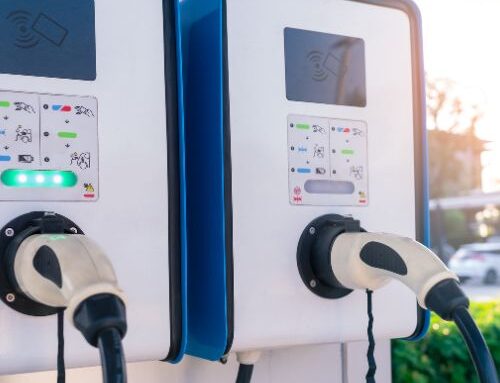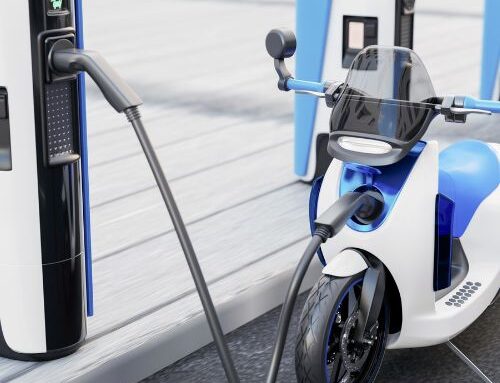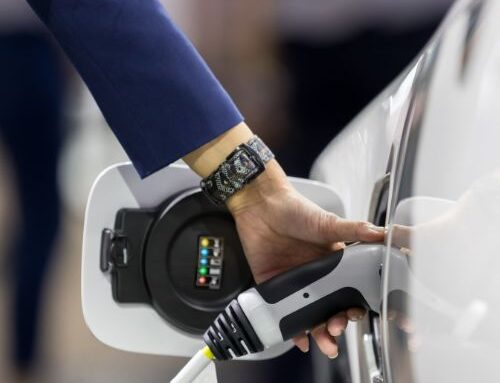The Future of Residential EV Charging Stations
With the growing popularity of electric vehicles (EVs) and the urgent need to reduce carbon emissions, the focus on residential EV charging stations has intensified. As more households embrace the shift toward sustainable transportation, it is essential to explore the future of residential EV charging stations and how they will shape the way we power our homes and vehicles. In this blog, we will delve into the key trends and advancements that are driving the future of residential EV charging stations.
Integration with Smart Homes:
The future of residential EV charging stations lies in their integration with smart home technology. Imagine a scenario where your EV charging station communicates seamlessly with your home energy management system. It optimizes charging based on renewable energy availability, time of use rates, and grid demand. This integration allows for efficient energy consumption, cost savings, and reduced strain on the grid.
Wireless Charging:
One of the most exciting advancements in residential EV charging is wireless charging technology. Instead of plugging in your EV, wireless charging enables vehicles to charge simply by parking over a charging pad embedded in the ground. This technology eliminates the need for physical connectors and simplifies the charging process, making it more convenient for homeowners.
Vehicle-to-Grid (V2G) Integration:
Residential EV charging stations of the future will go beyond just charging vehicles. They will also enable vehicle-to-grid (V2G) integration, allowing EVs to serve as mobile power sources. During periods of high energy demand or emergencies, EVs can supply electricity back to the grid, acting as temporary power storage units. This bi-directional flow of energy not only supports the grid but also offers opportunities for EV owners to earn incentives.
Scalable Infrastructure:
As the number of EVs on the road continues to increase, residential EV charging infrastructure needs to scale accordingly. The future will witness the deployment of charging stations in apartment complexes, shared residential spaces, and communities. This expansion aims to provide equitable access to charging facilities for all residents, regardless of their housing type.
Energy Storage Integration:
Residential EV charging stations will likely integrate with home energy storage systems, such as solar batteries. This integration allows homeowners to store excess solar energy and utilize it for EV charging later, reducing dependency on the grid and promoting self-sufficiency. It also ensures that EV charging remains uninterrupted, even during power outages or peak demand periods.
Rapid Charging:
The future of residential EV charging stations will feature rapid charging capabilities. As battery technology improves, EVs will be capable of accepting higher charging rates, significantly reducing charging time. With rapid charging infrastructure at home, EV owners can quickly replenish their vehicle’s battery, making EV ownership even more convenient and appealing.
Grid Integration and Demand Response:
Residential EV charging stations will be integrated into the electric grid to support demand response programs. These programs incentivize EV owners to charge their vehicles during off-peak hours, aligning with grid needs and reducing strain during peak periods. By participating in demand response, homeowners can contribute to grid stability and cost optimization.
Enhanced Connectivity:
The future of residential EV charging stations will be characterized by enhanced connectivity. Charging stations will be equipped with advanced communication capabilities, allowing homeowners to monitor and control charging remotely. Smartphone applications and smart home devices will enable users to schedule charging sessions, track energy usage, and receive real-time updates on their charging status.
Sustainable Materials and Design:
Environmental sustainability will play a crucial role in the future of residential EV charging stations. Manufacturers will focus on using sustainable materials in the construction of charging stations, reducing their carbon footprint. Additionally, aesthetically pleasing designs will be incorporated to blend harmoniously with residential landscapes, ensuring that EV charging infrastructure enhances the visual appeal of the surrounding environment.
Artificial Intelligence and Machine Learning:
Residential EV charging stations will leverage the power of artificial intelligence (AI) and machine learning algorithms to optimize charging patterns. These technologies will analyze historical data, weather forecasts, and user preferences to determine the most efficient and cost-effective charging strategies. AI-driven charging algorithms will ensure that EV owners receive the optimal charging experience while minimizing energy costs and grid impact.
Enhanced User Experience:
The future of residential EV charging stations will prioritize user experience. Charging stations will feature user-friendly interfaces, intuitive controls, and personalized settings. EV owners will have access to detailed charging statistics, energy consumption reports, and billing information, all designed to enhance their overall charging experience.
Interoperability and Standards:
To promote widespread adoption and compatibility, future residential EV charging stations will adhere to industry standards for interoperability. Common protocols and communication standards will ensure that EVs from different manufacturers can seamlessly connect to any charging station, regardless of the brand. This interoperability will facilitate convenience and flexibility for EV owners.
Cybersecurity Measures:
As residential EV charging stations become more connected, robust cybersecurity measures will be crucial. Future charging stations will incorporate advanced encryption protocols, authentication mechanisms, and continuous monitoring systems to safeguard against potential cyber threats. Protecting the privacy and security of users’ data will be a top priority in the design and operation of charging infrastructure.
Support for Autonomous Vehicles:
With the advent of autonomous vehicles, residential EV charging stations will adapt to meet their unique requirements. Charging stations will incorporate features such as autonomous parking, autonomous plug-in, and automated billing processes to seamlessly accommodate self-driving EVs. This integration will enable autonomous vehicles to charge efficiently and effortlessly, supporting the widespread adoption of this technology.
Collaborative Charging Networks:
Future residential EV charging stations will be part of collaborative charging networks, connecting with public charging infrastructure and commercial charging stations. These networks will enable seamless roaming and interoperability between different charging providers, making it easier for EV owners to find and access charging facilities wherever they go. Collaborative charging networks will enhance the convenience and alleviate range anxiety for EV users.
Innovative Financing Models:
To encourage the installation of residential EV charging stations, innovative financing models will emerge. These models may include partnerships between utilities, charging station manufacturers, and financial institutions to offer attractive incentives, low-cost financing, or subscription-based charging plans. Such initiatives will make residential EV charging infrastructure more accessible and affordable for homeowners.
Data Analytics for Grid Planning:
The data collected from residential EV charging stations will play a crucial role in grid planning and infrastructure development. Utilities and grid operators can analyze charging patterns, energy demand, and load distribution to optimize grid capacity, identify potential bottlenecks, and plan for future grid upgrades. Data-driven insights will ensure the efficient and sustainable integration of EVs into the existing power grid.
Collaborations with Renewable Energy Providers:
Residential EV charging stations of the future will forge partnerships with renewable energy providers. Charging infrastructure will be integrated with solar panels, wind turbines, or other renewable energy sources, enabling EV owners to charge their vehicles with clean, green energy. This collaboration will further enhance the sustainability of EV charging and contribute to the transition towards a carbon-neutral transportation system.
Mobile Apps and EV Charging Ecosystems:
Mobile applications will become central to the future of residential EV charging stations. EV owners will have access to comprehensive mobile apps that provide real-time charging status, location-based charging station recommendations, payment integration, and personalized charging plans. These apps will be part of larger EV charging ecosystems, connecting users with a wide network of charging stations, energy providers, and service providers.
Energy Sharing and Peer-to-Peer Charging:
Residential EV charging stations will facilitate energy sharing and peer-to-peer charging among homeowners. Through blockchain technology or decentralized energy platforms, EV owners will have the ability to share excess energy from their residential charging stations with others in their community. This peer-to-peer charging approach promotes energy self-sufficiency, fosters community collaboration, and maximizes the utilization of renewable energy resources.
Predictive Maintenance and Remote Monitoring:
Future residential EV charging stations will leverage predictive maintenance and remote monitoring capabilities. Through real-time monitoring and data analysis, charging stations can proactively detect potential faults or malfunctions and alert users or service providers. This proactive approach ensures reliable and uninterrupted charging services while minimizing downtime and maintenance costs.
Education and Awareness Programs:
To support the widespread adoption of residential EV charging stations, education, and awareness programs will be essential. Homeowners will have access to resources, workshops, and guidance on EV charging infrastructure installation, operation, and maintenance. These programs will aim to increase awareness of the environmental and economic benefits of EVs and encourage homeowners to embrace sustainable transportation solutions.
Government Incentives and Policies:
Governments around the world will play a crucial role in shaping the future of residential EV charging stations. They will implement supportive policies, regulations, and incentives to encourage the installation of charging infrastructure in residential areas. These measures may include tax incentives, grants, rebates, and streamlined permitting processes, making it more affordable and convenient for homeowners to adopt EV charging solutions.
International Standardization:
To ensure global interoperability and compatibility, international standardization efforts will be crucial for residential EV charging stations. Collaboration between industry stakeholders, standardization bodies, and regulatory authorities will establish common technical standards, communication protocols, and safety requirements. This standardization will promote the seamless integration of charging infrastructure across different countries and regions.
Continuous Technological Advancements:
The future of residential EV charging stations is marked by continuous technological advancements. As research and development efforts intensify, new breakthroughs in charging technology, battery efficiency, and energy management will emerge. These advancements will drive the evolution of charging stations, making them more efficient, faster, and capable of supporting the next generation of electric vehicles.
Conclusion:
The future of residential EV charging stations is bright and promising. With advancements in technology, integration with smart homes, wireless charging, V2G integration, and scalable infrastructure, these charging stations will play a vital role in supporting the widespread adoption of electric vehicles. As we move toward a sustainable transportation future, residential EV charging stations will be a cornerstone of the clean energy ecosystem, empowering homeowners to embrace electric mobility while contributing to a greener, more sustainable planet.




